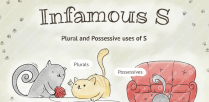As we are learning English, we are going to speak to other English speakers, aren’t we?
In English language there are some hidden dangers; one wrong word or the correct one but in a wrong place may have some after-effects.
One of my students said “We are too long together with my boyfriend.” And I asked her if she was tired with him and their relations. But she wanted to say that she was happy with their very long-term relationship.
Let’s study the example: “too long” is hyponym to the word “very.” “Very” is less specific, when “too” may have its negative or excessive shades.
The negative meanings: “My coffee is too hot! I can’t drink it.”
“I have waited for too long! I quit!”
“I am sorry, but you are too young for this post.”
The positive meanings: “I am too glad! Thank you very much!”
“You are too kind, I don’t know if I can accept this gift.”
So you can see that if we use “too” with “long” we can tell something rude someone. But if we use some positive words as “glad” or “kind” we will give extra favorable meaning.
There are few notions I used to explain the idea: hyponym, hypernym and co-hyponym. For example a tree, a plant, an oak. An “oak” here is hyponym to a “tree,” which is its hypernym. Both words have their co-hyponym “plant.”
Don’t be afraid of the terminology, it is easy to understand: “hyper-“ means something above or excessive; “hypernym” includes all of the minor notions. E.g. “plant” includes trees, flowers and oaks and roses.
The antonym to hypernym is “hyponym”: flower, rose, tree are hyponyms to the word “plant.”
What other examples or hyponyms and hypernyms do you know? When should we use one word and another?
Source: Cambridge University Press, English Grammar in Use, Raymond Murphy – http://www.amazon.com/English-Grammar-Use-Self-study-Intermediate/dp/0521189063








